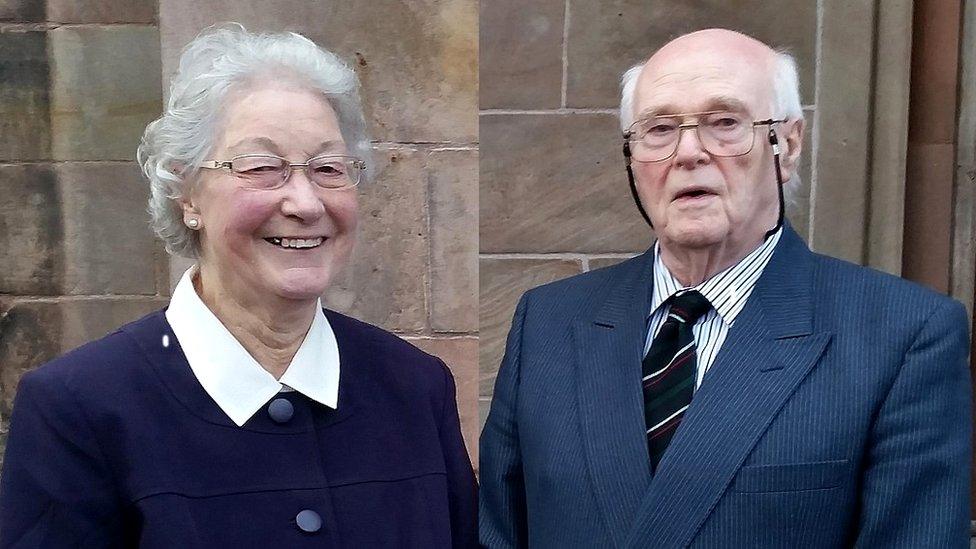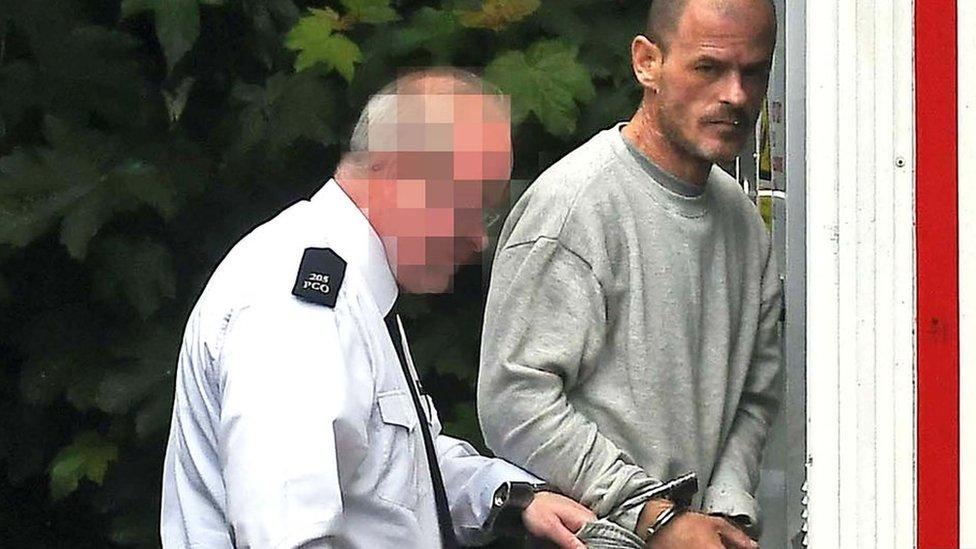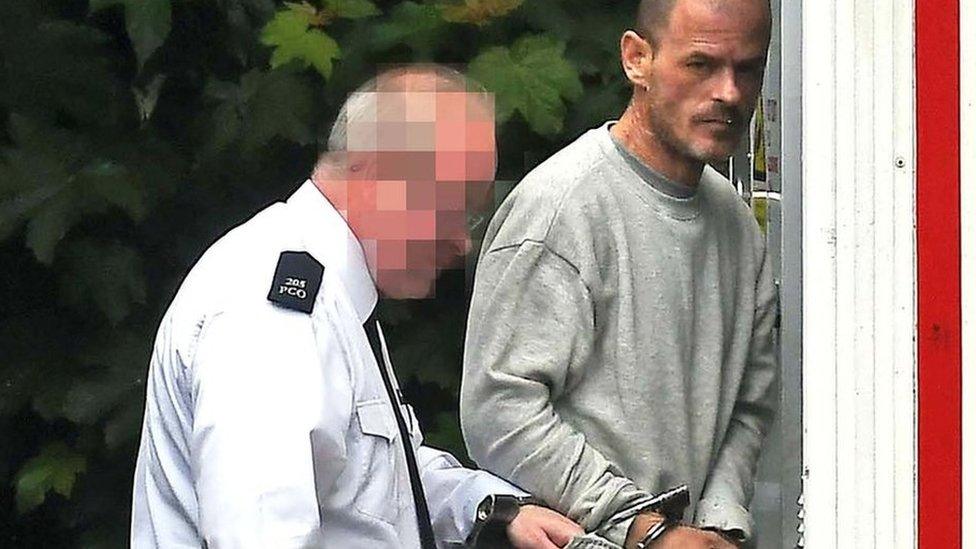Cawdery killings: Inquest hears differing accounts of what police told mental health team
- Published

Marjorie and Michael Cawdery were killed in a stabbing at their home in Portadown, County Armagh, in 2017
An inquest into the deaths of an elderly couple has heard conflicting evidence about what a mental health team assessing their killer was told.
Michael and Marjorie Cawdery, both 83, died in a "frenzied attack" in their County Armagh home in May 2017.
The inquest heard differing accounts from a police constable and a doctor who saw Thomas Scott McEntee four days before he killed the Cawderys.
McEntee is serving a minimum of 10 years in jail for manslaughter.
The inquiry heard from Dr Melissa King, who was part of a two-person team tasked with assessing Entee's state of mind at the Mater Hospital in Belfast on 22 May 2017.
Dr King told the court that she was the note taker during the assessment and a mental health nurse, Joe McConville, had taken the lead.
She said that during the assessment McEntee denied any suicidal thoughts, paranoia or any delusional beliefs.
Dr King said they had been told McEntee had presented himself to Musgrave Police Station stating his life was in danger and that there were concerns about paranoia and talk of an "inner light"
'Inner light'
She told the inquest that, during the assessment, McEntee said sobriety was the "inner light" he had been talking about and that others were trying to take that away.
He said he had addiction issues before but was now one year and 11 months clean.
The inquest heard that there was no reference in Dr King's notes about engagement with police.
Asked if she could remember what Constable Hugh Gibson, who was in attendance, had said, the doctor said he had talked of McEntee's paranoia and "an inner light".
Asked if there had been any reference to "angels and demons" or "poisoning", she said there had not, adding if there had been, it would have been recorded in her notes.
She said this would have been relevant and that it would have been used by Mr McConville to probe McEntee further during the assessment.

Thomas Scott McEntee at an earlier court hearing
Asked by counsel for the coroner if she had been told McEntee was a danger to himself or others, Dr King said if the team had been told they would have asked for police to remain in the room for their safety.
The inquest then heard from Constable Gibson, who sat with McEntee for several hours at the Mater's emergency department as he waited to be assessed.
The officer told the court he relayed his concerns to the triage nurse about McEntee's behaviour and he believed he needed a mental health assessment and that he needed to be "sectioned".
He said that he had concerns about violence.
Constable Gibson said he told the mental health team McEntee had told him "if anyone had tried to put out the inner light, he would defend himself".
The officer said he had not made notes in his police notebook about his time at the hospital and that he made his statement seven months after the incident.
It was noted that a risk assessment prepared by officers who sat with McEntee before Constable Gibson, in which McEntee was recorded as having no threat of violence.
Asked why he made no change to the risk assessment despite having had a lengthy conversation with McEntee, Constable Gibson said he thought it was more pertinent to relay his concerns to medical staff.
Under questioning by counsel for the South Eastern Trust, the officer was asked why he allowed someone he believed to be violent into a room with two medical practitioners.
He replied that he had informed the mental health team of his concerns.
The health trust's legal team put it to the officer that he had not raised concerns with mental health staff and if he had it would be in his notes.
Constable Gibson said he also checked McEntee's criminal record and relayed his record of violence to the staff. This information was not included in Constable Gibson's statement.
It was put to him that he was making this up as he went along - Constable Gibson denied this.
Counsel went on to suggest that allegations that information he had provided to the mental health team concerning McEntee speaking about angels and devils, and that he felt McEntee was a danger to himself and others, were not true. Constable Gibson replied that that was not the case.
The inquest continues.
- Published13 June 2023

- Published12 June 2023

- Published14 June 2023
